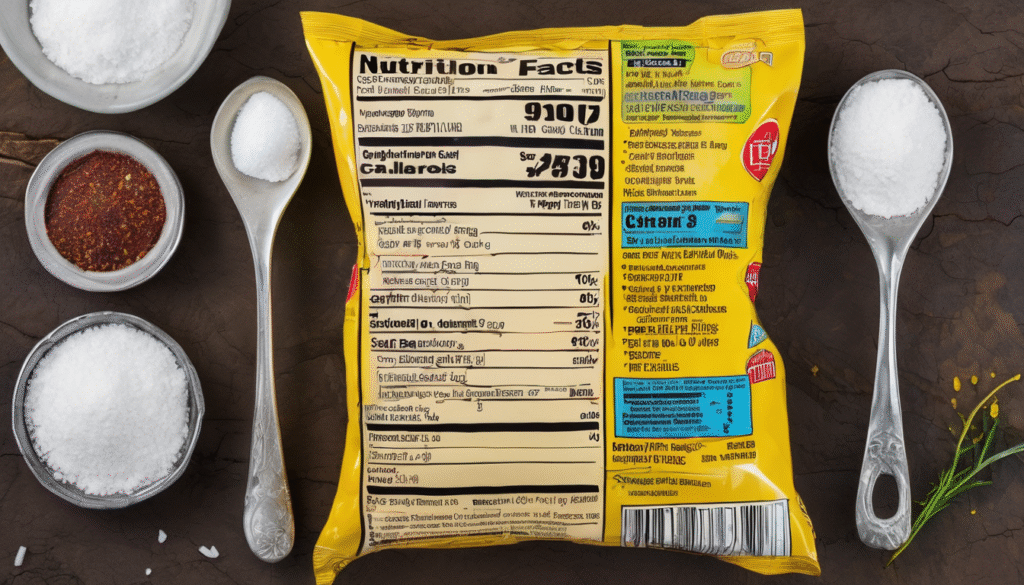For millions of people, Maggi noodles are more than just food. They are a quick fix for hunger, a comfort snack, and even a childhood memory. Whether it’s college students pulling all-nighters, busy professionals needing a fast meal, or families enjoying a warm bowl on a rainy day, Maggi has become a household favorite.
But over the years, many people have started asking: Is Maggi good for health? While some say it’s harmless if eaten occasionally, others argue that it’s unhealthy and shouldn’t be part of a regular diet. Like many, I’ve often wondered the same while enjoying my own bowl of Maggi late at night.
Let’s break down the truth behind everyone’s favorite instant noodles and see whether Maggi is good for health or just a tasty habit we can’t let go of.
1. Nutritional Profile of Maggi

To understand if Maggi is good for health, we first need to look at its nutrition chart. A standard pack of Maggi (70g) provides:
Around 310–350 calories
12–15 grams of fat
45–50 grams of carbohydrates
Only about 6–7 grams of protein
Very little fiber
High sodium content (800–1,000 mg per pack)
At first glance, this may not look too bad if you’re hungry and need quick energy. But when compared to a balanced meal that has carbs, proteins, vitamins, and minerals, Maggi falls short. The main concerns are its low protein and fiber content, as well as the high sodium levels, which can harm health in the long run.
2. Ingredients in Maggi Noodles

Maggi is made of several ingredients that give it its taste and long shelf life, but not all are healthy.
Refined Wheat Flour (Maida): The noodles are made from refined flour, which has very little nutrition. Regular consumption of maida can lead to weight gain and digestive problems.
Palm Oil: Used in frying the noodles, palm oil is high in saturated fats, which can increase cholesterol levels.
Flavor Enhancers (MSG): Monosodium Glutamate (MSG) is added to enhance flavor. While it is generally recognized as safe in moderate amounts, debates continue regarding its long-term effects. [2]
Preservatives and Additives: These help keep the noodles fresh for months, but processed additives are never as healthy as fresh ingredients.
So, while Maggi tastes delicious, its ingredients raise concerns when we ask: Is Maggi good for health?
3. Health Concerns Associated with Maggi
Eating Maggi regularly can bring some health issues over time. Here’s why:
High Sodium: A single pack of Maggi can provide almost half the daily recommended sodium intake. Too much sodium is linked to high blood pressure, kidney issues, and heart problems. [3]
Low Nutritional Value: Maggi fills your stomach but doesn’t nourish your body. It lacks essential vitamins, minerals, and enough protein.
Refined Carbohydrates: Maggi is high in refined carbs, which can cause blood sugar spikes, weight gain, and increased risk of diabetes.
Digestive Issues: Since Maggi has very little fiber, it doesn’t help digestion. Eating it often can lead to constipation or poor gut health.
These concerns make it clear that saying “Maggi is good for health” without conditions would be misleading.
4. The MSG Controversy

One of the biggest debates around Maggi is about MSG (Monosodium Glutamate), a flavor enhancer. Many people believe MSG is harmful and causes headaches, allergies, or long-term health problems.
But what do studies say?
Research shows that MSG is safe when consumed in normal amounts.
The FDA has deemed MSG as “generally recognized as safe.” [1]
The side effects people report are usually from consuming extremely high amounts, far more than what’s in a packet of Maggi.
So, if you’re asking, is Maggi good for health when it contains MSG? MSG in Maggi is not harmful in small amounts, but moderation is key.
5. Occasional vs Regular Consumption
Here’s where things get interesting. If you eat Maggi occasionally as a treat, it’s usually not harmful. But if Maggi becomes a regular part of your diet, that’s when the health risks add up.
Occasional consumption:
A quick snack after a long day.
An emergency meal when you’re short on time.
This is a comfort food for cold nights or rainy days.
Regular consumption:
Eating Maggi daily or multiple times a week.
Replacing healthy meals with Maggi.
It serves as a source of energy and nutrition.
When consumed occasionally, you can enjoy it without guilt. However, eating Maggi daily is not a healthy choice; in this case, the answer to whether Maggi is good for health would definitely be no.
6. Healthier Ways to Eat Maggi
The good news is that you can make Maggi healthier with a few simple changes. Here’s how I like to prepare mine when I want a guilt-free version:
Add Vegetables: Toss in carrots, peas, beans, spinach, or capsicum while cooking. This adds fiber, vitamins, and minerals.
Reduce Tastemaker: Use only half the seasoning packet to cut down sodium. You can replace flavor with herbs or spices.
Add Protein: Mix in boiled eggs, grilled chicken, or paneer to balance the meal with protein.
Choose Variants: Some markets offer whole wheat or multigrain versions of Maggi, which are slightly healthier than regular ones.
By making these changes, you can enjoy Maggi while reducing some of its adverse effects. This way, you get closer to making the statement “Maggi is good for health” at least partly true.
7. Expert Opinions on Maggi
Nutritionists and dietitians generally agree on one point: Maggi is not harmful if eaten occasionally, but it should not replace proper meals.
Compared to other instant noodles, Maggi has similar nutritional issues, notably exceptionally high sodium levels, and low protein content.
Experts suggest that it is best to limit the consumption of instant noodles to once or twice a month.
They emphasize balancing Maggi with fresh foods, exercise, and an overall healthy lifestyle.
So, while experts won’t say outright that Maggi is good for health, they do agree it can be enjoyed in moderation without serious harm.
- Disclaimer: This article is only for educational purposes and should not replace medical advice. Please consult a nutritionist for more information.
Conclusion
So, is Maggi good for health? The truth is, Maggi is tasty, affordable, and convenient, but it’s not a highly nutritious food. Eating it occasionally is perfectly fine and can even bring joy and comfort. However, incorporating Maggi into your diet regularly can lead to health issues due to its high sodium content, low nutritional value, and refined ingredients.
From my own experience, I’ve learned that the best approach is balance. I still enjoy Maggi occasionally, especially when I add veggies and some protein, but I don’t rely on it for daily meals.
In summary, Maggi can be considered healthy when consumed in moderation and balanced with nutritious options. Enjoy it as a snack rather than a main meal, allowing you to relish your favorite noodles without guilt.
How many times do you eat Maggi in a week? Let me know in the comments section below.
Sources: fda.gov,verywellhealth.

